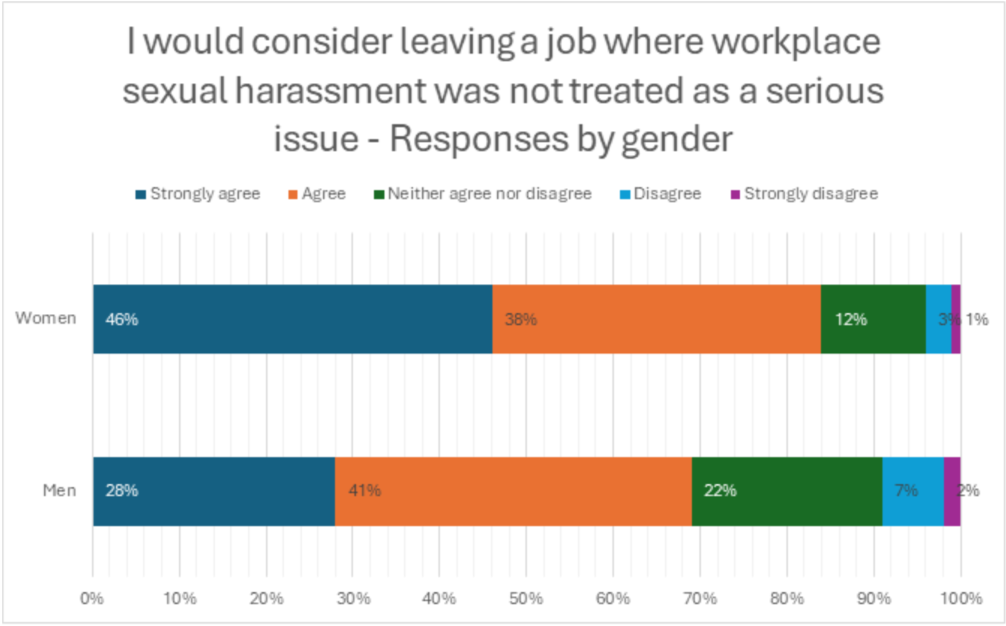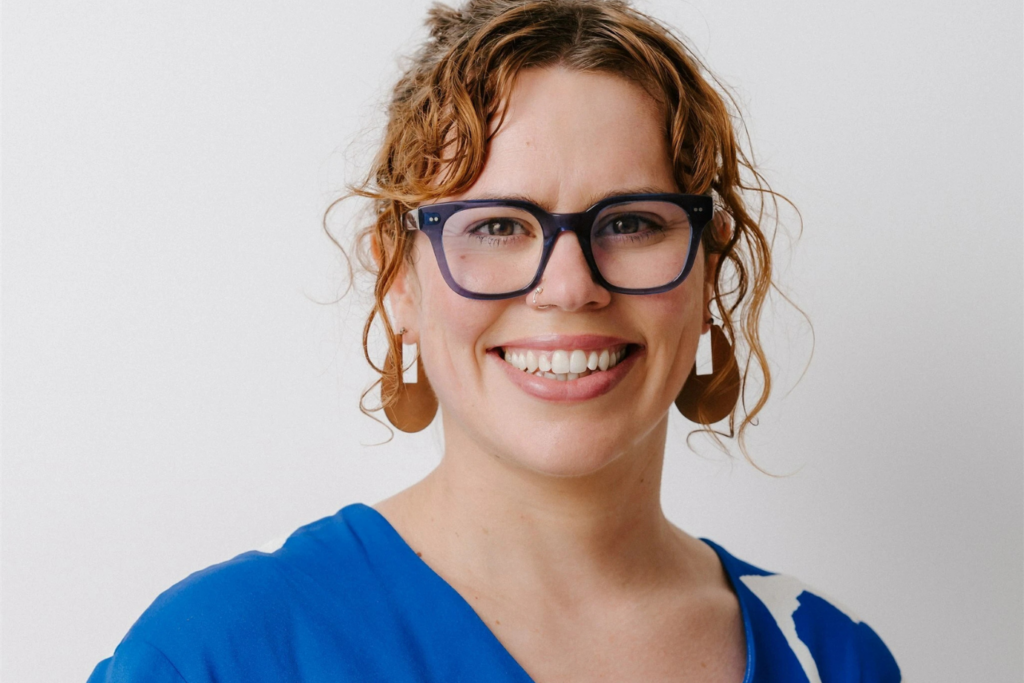If sexual harassment isn’t treated as a serious issue in the workplace, 83 per cent of women would consider leaving their job, according to new research.
The survey of leaders and employees in medium to large workplaces commissioned by Our Watch also shows that 67 per cent of male employees would do the same.
This means three-quarters of people would consider leaving a job that didn’t treat sexual harassment seriously, showing strong incentive for employers.
Regardless of whether a woman has experienced it or not, Our Watch Acting Chief Executive Officer, Cara Gleeson tells Women’s Agenda that the data shows sexual harassment is being considered in the choices of where women want to work.
“Coming back from school holidays and summer holidays, it’s really important for leaders across Australia to think about how do their employees know that safety and and their culture at work is important to them?” Gleeson says.
“We hear from so many leaders saying it’s really hard to have a competitive edge in this job market. This data shows that the way that you model, the way that you discuss, the way that you share your approach to ensuring that your workplace is safe and that sexual harassment is taken seriously, is a really important, powerful message to be sending to your current team and to prospective new people coming into your team as well.”
The survey data also shows gender equality is a key issue for attracting female employees in particular, with 75 per cent of women compared to 44 per cent of men agreeing that if they were looking for a new job, the workplace’s approach to gender equality would be an important consideration.

What can employers do?
Under the Sex Discrimination Act, employers have a positive duty to take active steps to prevent and eliminate sexual harassment and workplace discrimination on the grounds of sex.
Gleeson says Our Watch is working with and supporting large and smaller employers to embed equality and respect in the workplace.
We know that sexual harassment in the workplace can be produced and altogether prevented by creating a culture of safety, respect and equality,” says Gleeson.
“I really want leaders to think about how they’re investing in their internal reporting processes. So, if someone has experienced an incident. What is the reporting process that they use in the workplace, ensuring accountability? How is it ensuring that the victim is really centered?”
Gleeson also hopes leaders are thinking about the tone they set for the workplace they’re leading. This involves showing their team that it’s a priority for them to feel safe, respected and supported.
“There’s also many things behind the scenes [employers can be doing], like how they can ensure that they have best practice policies on sexual harassment, on family and domestic violence leave, on gender equality [and] on parental leave,” she says, adding that employers should consider what drives sexual harassment and implement preventative measures through education and training programs.
Action is critical
More than 40 per cent of women and 26 per cent of men have experienced workplace sexual harassment in the past five years according to the Australian Human Rights Commission. The rate increases significantly for Aboriginal or Torres Strait Islander (56%), LGBTIQA+ (46%) or younger workers (46% of 15-29 year-olds).
This workplace sexual harassment affects other factors as well, such as the gender pay gap and representation of women in leadership positions, says Gleeson.
These impacts reach beyond the workplace as well, affecting Australia’s broader crisis of gender-based violence.
Gleeson points out that “at the heart of [sexual harassment], there’s an individual who believes that they’re entitled to act in an appropriate and harmful manner.”
“But broadly,” she says, “we know that gender inequality and disrespect in the workplace are part of what drives a culture that will have a heightened rate or more extreme incidences of sexual harassment.”
“Sexual harassment is one type of gender based violence, and in Australia, we have a serious problem with gender-based violence, with one in three women experiencing physical violence over the age of 15 in their lifetime, and one in four experiencing sexual violence as well. So we know that it’s a really serious issue.”
“Similar to the microcosm of the workplace”, Gleesons says in order to prevent all types of gender-based violence, we must ask ‘what kind of society are we? What kind of community are we? What kind of values are we promoting around equality and respect?”
If you or someone you know is impacted by sexual assault, family or domestic violence, call 1800RESPECT on 1800 737 732 or visit www.1800RESPECT.org.au. In an emergency, call 000.


